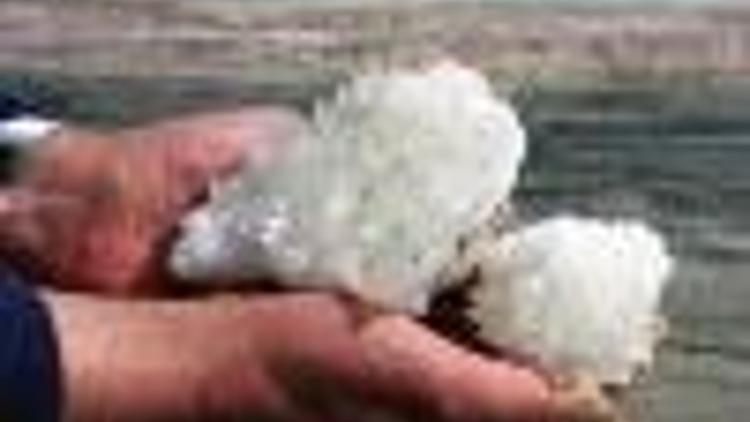Boron dreams fade away
Güncelleme Tarihi:

ISTANBUL – Turkey’s dreams of becoming an international boron hub fades away with the European Union’s decision to include boron in a list of toxic substances. Worried that its boron exports may decline 50 percent, Turkey announces it is planning to file a lawsuit with the World Trade Organization
Turkey’s dream to become a global boron hub has dissolved with the European Union’s decision to categorize boron a toxic substance. In a counter action, Turkey is preparing to file a lawsuit with the World Trade Organization, or WTO, against the EU.
Turkey and the United States are the world's largest producers of boron, with Turkey holding almost 72 percent of the world’s boron potential and estimated reserves of just over 3 billion tons.
Turkey’s annual exports of boron, which is heavily used in producing detergents, glass and ceramic, add up to $40 million and the country had plans to one day obtain billions of dollars from exports by becoming a global boron hub. However, despite Turkey’s objections, the EU has classified boron as “toxic for reproduction.”
The decision, which is expected to be detrimental to 70 percent of Turkey’s boron and derivative exports, may also shape the country’s export to countries outside the EU.
Turkey, which has been objected to the WTO sanctions twice before, has submitted an application to the WTO for the first time, asking for action on the grounds that the directive would limit free trade.
Several preventative attempts
The process related to boron’s classification began when the European Commission launched an investigation into the mineral. Then, the Technical Committee for Adaptation to Technical Progress, on Feb. 2007, accepted a recommendation that envisaged the classification of boric acid and sodium borates as “toxic for reproduction.”
Turkey, which monitors the committee’s activities at all times, conveyed its concerns about the boron issue to the Common Committee of the Customs Union. State Minister Kürşad Tüzmen, the minister of environment and forestry and the energy minister sent official letters to the related commissioners. However, the initiatives could not prevent the decision.
Turkey emphasized its objections several times to the WTO over the period, and offered to collaborate with the EU. During a technical meeting in February, Turkey expressed its decision to bring the issue up to the WTO Dispute Settlement Body if the classification decision was approved. However, the EU approved the directive June 9. The decision was published in the Official Journal of the European Union on Sept. 15 to be effective 20 days later.
Other countries, such as the U.S., Malaysia, Australia, Argentina, Chile, Japan and China, are also against the EU decision. After filing a compliant with the WTO, the first action taken would be reconciliation between the parties. If that does not succeed, then the organization’s second step would be establishing a panel to reach decisions.
No scientific ground
Turkey objects to the decision on the grounds that the classification of boron as a hazardous material is not based on scientific studies and therefore must be seen as a technical barrier to trade. The EU's decision was based on experiments conducted on mice only, according to the objection. Boron was injected directly into the animal in high doses, although humans never consume pure boron or take it directly into their bodies.
Due to the EU’s decision, Turkey’s boron export market is likely to shrink by 50 percent, meaning an annual loss of $50 million at minimum. The decision will also have “secondary and psychological impacts” once countries reflect the EU directive on their national legislations.
In accordance with the directive, boron and its derivatives, which are products that contain more than 5.5 percent of boron, will have a warning and certain symbols such as a skull on their packages.
Moreover, cosmetics will not be allowed to include over 5.5 percent of boron derivatives in their content. Such warnings usually deter potential buyers, even if they do not affect exports directly at the initial phase, according to experts. The EU’s decision may become, particularly on the environment and human health, a model for other countries, which makes the situation graver for Turkey, they said.
Turkey has 72 percent of the world’s boron reserves that total 4 billion tons. However, annual consumption, including Turkey, is 4 million tons. Some 95 percent of boron chemicals are sold to ceramics and detergent sectors. This year, boron exports are expected to be around $500 million to $600 million. Among this figure, an amount worth $130 million to $140 million will be exported to the EU.

